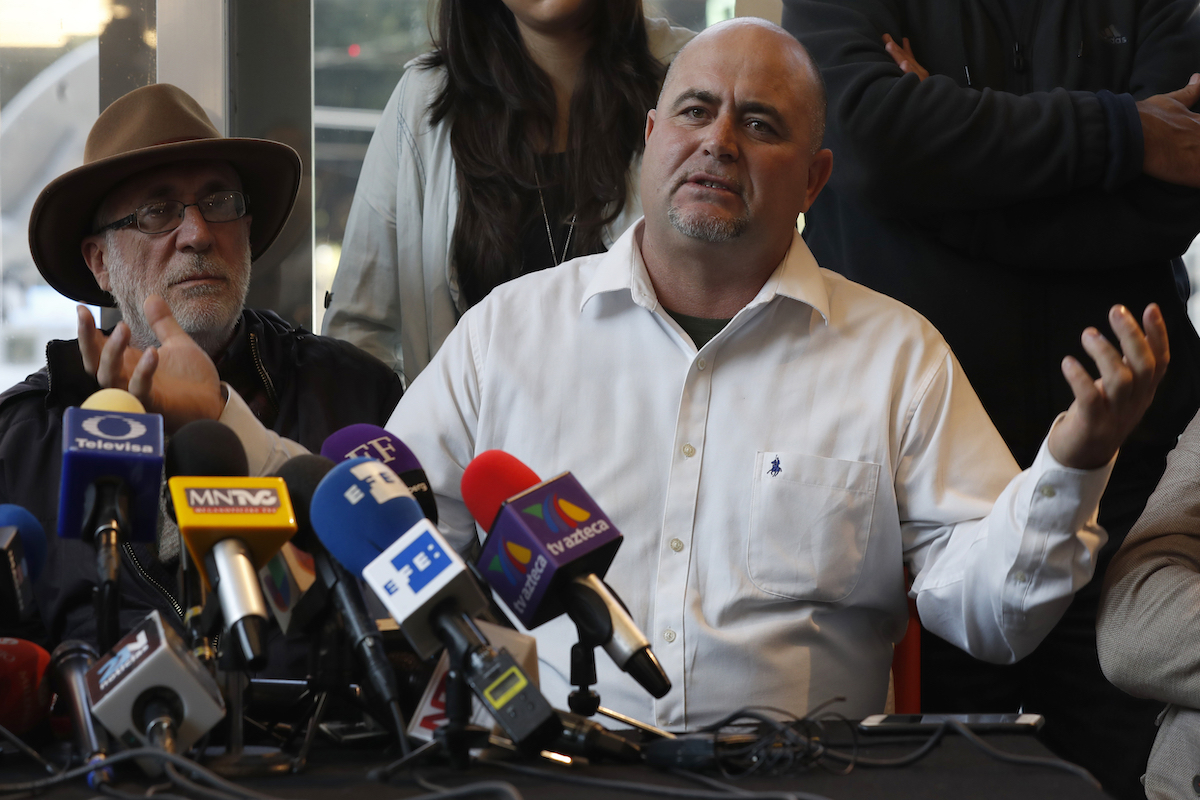

Julián LeBarón, who lost relatives and friends in a November 4, 2019 ambush in northern Mexico, gives a press conference accompanied by Mexican writer and activist Javier Sicilia in Mexico City, Thursday, January 9, 2020. Sicilia and LeBarón called for a January 23-26 Peace March from the city of Cuernavaca to the Zócalo of Mexico City. (AP Photo / Marco Ugarte)
MEXICO CITY (AP) — Relatives of nine U.S. dual-national women and children killed in northern Mexico in November said Thursday U.S. authorities told them they have two suspects under detention in the United States.
Bryan LeBarón said American officials told the family that two suspects had been detained in the United States, but did not specify what role they had played in the November 4 ambush attack.
Earlier this week, prosecutors said more than 40 suspects have now been identified in connection with the killings of the extended Langford and LeBarón families who have lived in northern Mexico for decades.
They consider themselves Mormon but are not affiliated with The Church of Jesus Christ of Latter-Day Saints. Many have dual U.S.-Mexican citizenship.
The prosecutors’ office did not offer any further details on the 40 suspects, many of whom are apparently known only by their nicknames.
Last week, prosecutors reported that three men were arrested and charged with organized crime for drug offenses, though none apparently yet faces homicide charges in the case.
They said four other suspects are being held under a form of house arrest. The name of one suspect announced by federal prosecutors Monday partially matches the police chief of the town of Janos, Chihuahua, near where the killings occurred. Local media reported the police chief had been in the pay of the La Línea drug gang.
Julián LeBarón, who lost relatives and friends in the ambush, confirmed the police chief had been arrested, and added, “That should be very worrying to everyone.”
“Who vets them?” LeBarón asked. “He [the police chief] was there for 13 years”, he said, questioning how state authorities could not have known the man was working for a drug cartel.


